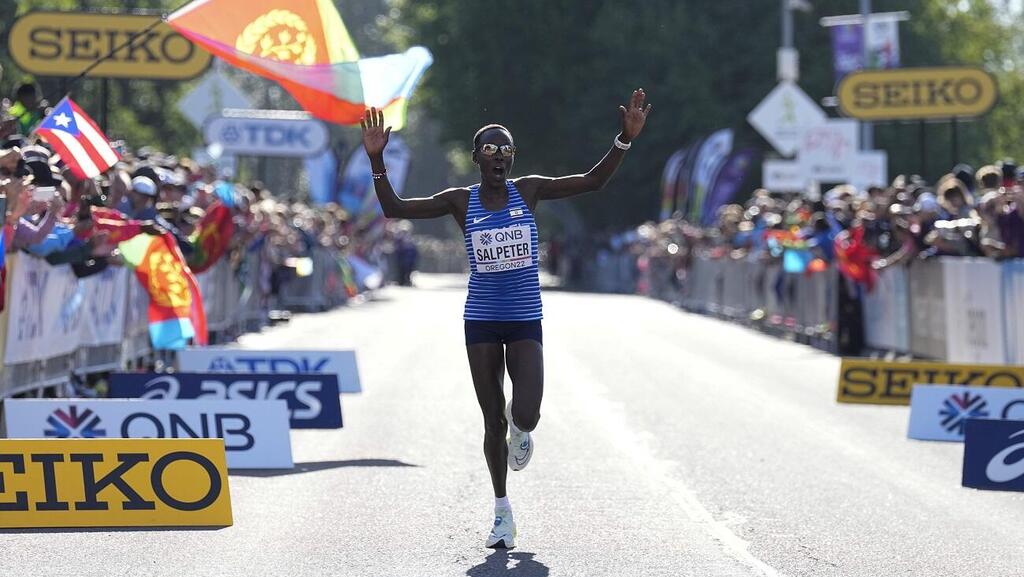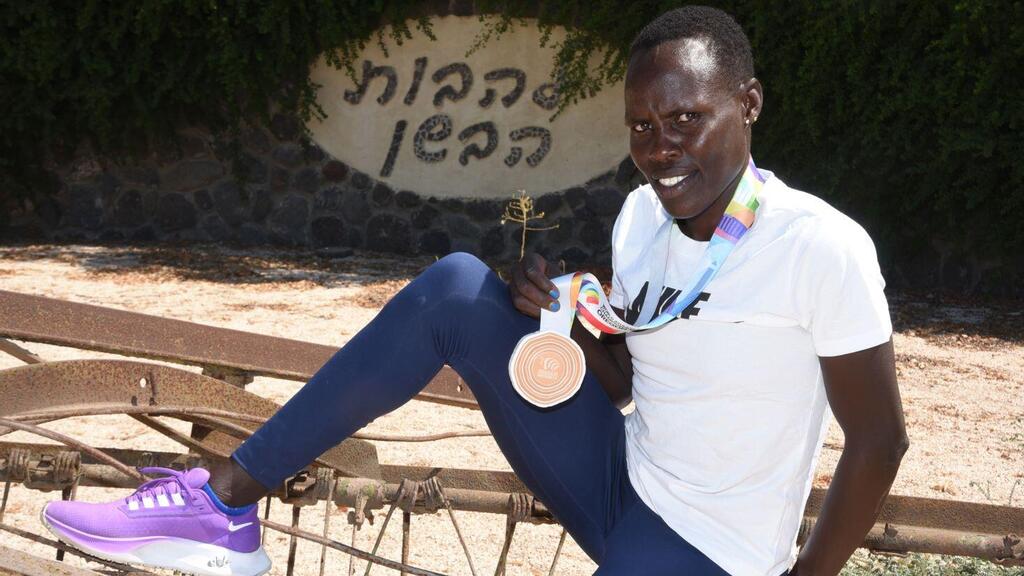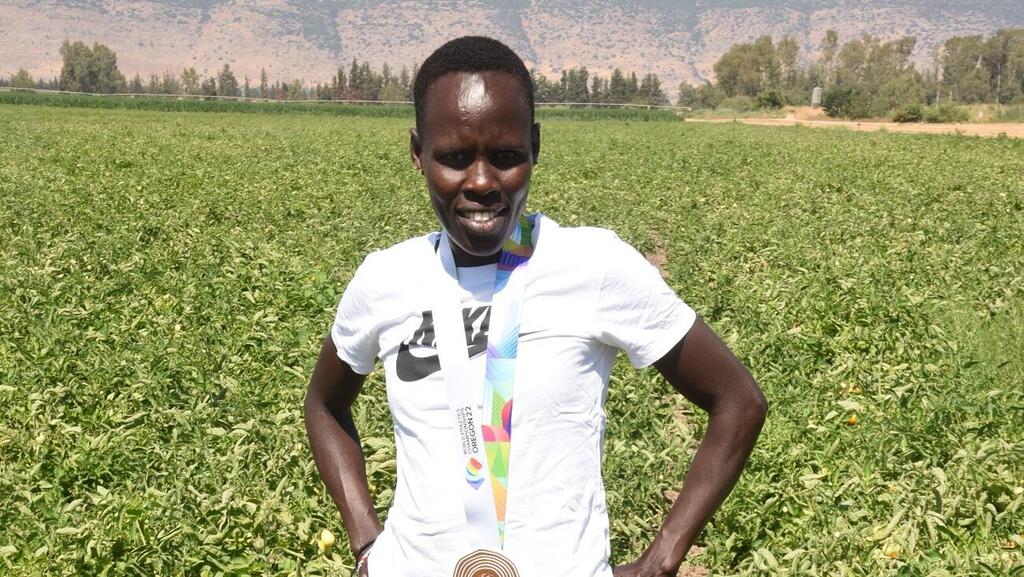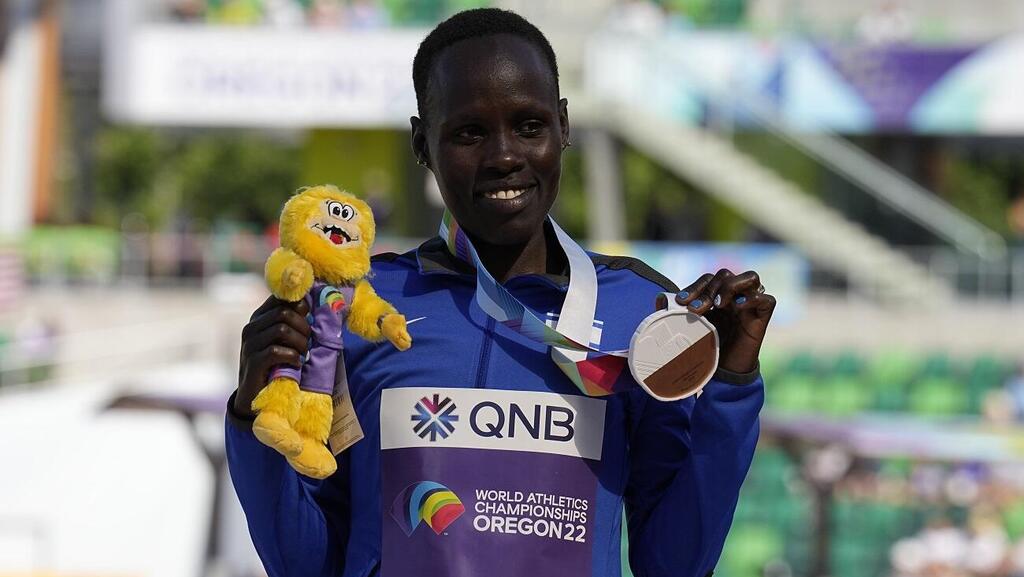Getting your Trinity Audio player ready...
Lonah Chemtai Salpeter, the Israeli athlete who broke the world record time in the women’s marathon race in the 2020 Tokyo Olympics, told Ynet that her early childhood years in Kenya were great.
“I grew up in a small village with 11 siblings from two mothers who my father married, in a dwellings made of sheet metal," she says.
"We had no electricity or water, and had to go down to the river to collect water which was not so clean, but we loved it,” Chemtai Salpeter remembers.
“"We had to do everything ourselves and use our imagination. We would play with whatever we found outside. We would talk to each other and laugh, and not be stuck with our heads in screens,” She says.
“School was far away from the village, some three kilometers.” Chemtai Salpeter says. “We didn’t complain. It was fun. We spoke for hours during our walks. We had no phones. I received my first one when I was 18,” she says.
“School in Kenya was different from anywhere else. We had time for sports, for studying and for eating. Everyone would do everything. We didn’t only have classes, but also activities outside, and I always loved to do sports. I knew I’d be an athlete, but wasn’t sure what I would compete in.” She says.
“There were no professional teachers for sports, one teacher taught everything. I started competing with other children in primary school. I played soccer, basketball, and I ran. We ran out of enjoyment and love, not as a competition,” she says.
“I was always picked for captain of the teams because I was good. We had competitions in the village on Fridays and also in school, just for fun. There was never a prize at the end.”
Chemtai Salpeter says her knowledge of Israel was from the bible. “As a child we would read about Israel in the papers and the bible, we thought it was paradise.
“I decided to move to Israel following my uncle and my family supported me. They knew I was doing what was right for me,” She says. “My uncle, who was living in Israel, offered me a job and I took it. I thought I was coming to work, and wasn’t planning on staying.”
Speaking to Ynet she says she stayed because she met her husband. "I was 18 and never saw anything other than my village. coming to Israel was It was my first time on a plane. Life in Kenya is harder. You needed to work very hard to get what you want,” she says.
“In Israel everything is much simpler and easier. You have a grocery store everywhere, and you can buy what you need. It was difficult to get used to so many options to choose from.”
Chemtai Salpeter says she first competed as a runner when she was 1-years-old.
“Everyone had an equal starting point, no one had better clothing or shoes than the other.” She says. "We ran with whatever we had and played with in school. Of course, my father was with me in that competition. My father liked my enthusiasm for sports and realized I had potential, but he could only cheer me on and push me to succeed,” she says.
There were many people, big and small, cheering-on their relatives. My father was there too. I was nervous. I couldn’t contain my urge to win. I couldn’t focus,” she remembers.
“But after I started winning, it made me relax and focus. I felt I was really enjoying it. I slowly realized this was what I loved and wanted to do,” she says.
“After the competition my father told me ‘look how strong you are, you can do anything,’ and from there on in my mindset began changing.” She says. “Since winning that competition, I stopped comparing myself to others, I did was not afraid to face anyone. I was fearless.
Chemtai Salpeter says her father had not seen her in major competitions abroad and win medals. "He passed away three years after I arrived in Israel, she says. "After he died, I would pray in every competition that he would be watching me and would see how much I have grown. I prayed he could be proud of me," she says.
"Today I realize my father is always with me, in everything I do, and that he made me what I am today.”
Now, she says she can do the same for her own children. “My oldest son, Roy, is eight-years-old and enjoys sports. He sees me working hard in training, running in marathons and he understands it’s not easy. No matter what he will do in the future, I will support him just as my father supported me,” she says.
“I went back to Kenya several times since I left,” She says. “Roy was with me. I took him to where I was born, and where I started running. Life there is different from what he knows. It’s curious to see how animals grow in a farm in freedom in Kenya, and how you take fresh produce straight from the farm. The visits don’t feel weird to me. Kenya is my second home, and where I first started running alongside my father.”






